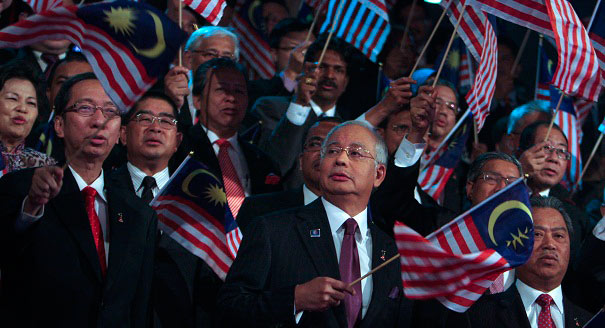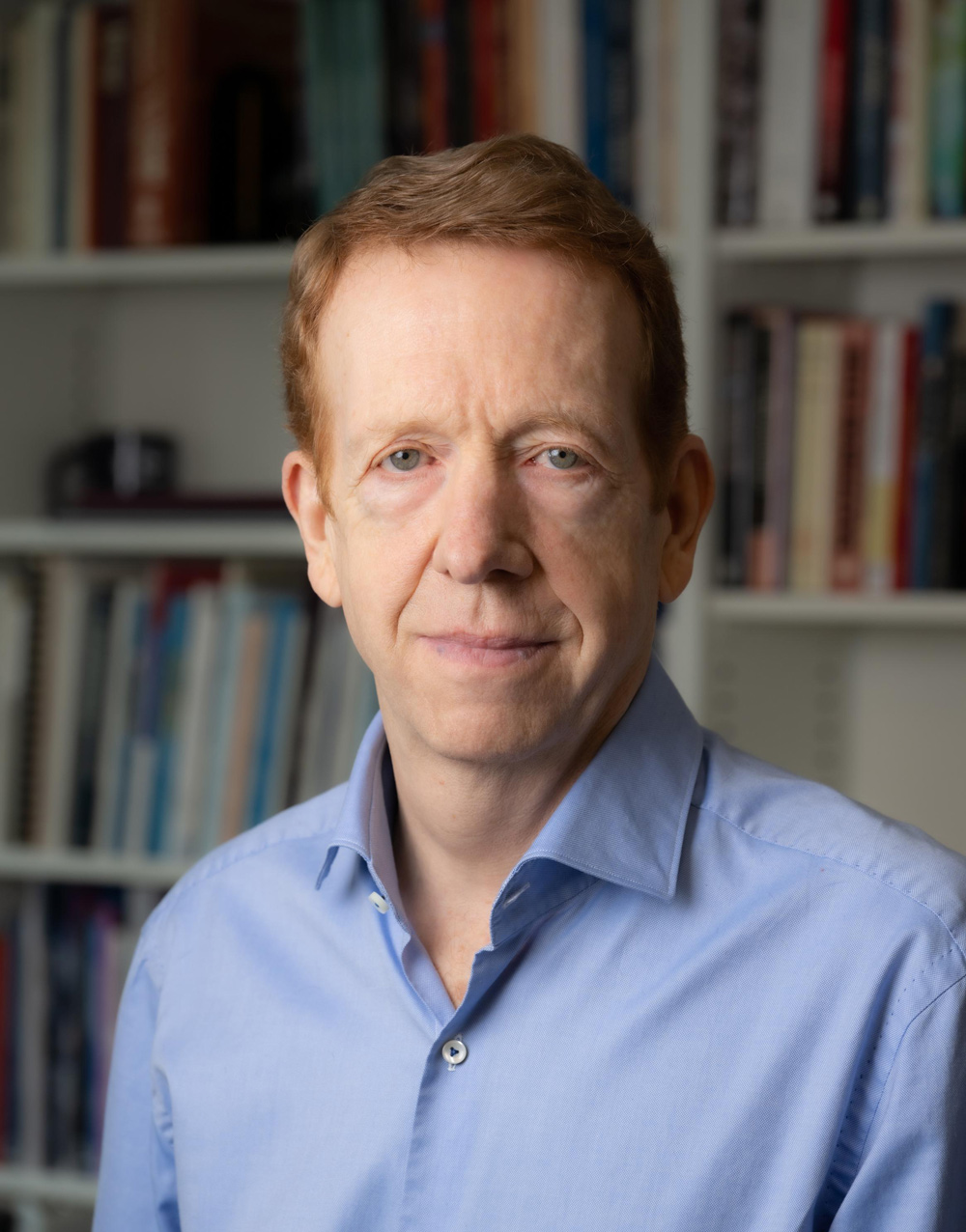How significant are statements by senior U.S. officials about supporting democracy abroad in the context of a foreign policy led by a president focused on near-term transactional interests?
Thomas Carothers, McKenzie Carrier
{
"authors": [
"Muthiah Alagappa"
],
"type": "legacyinthemedia",
"centerAffiliationAll": "dc",
"centers": [
"Carnegie Endowment for International Peace"
],
"collections": [],
"englishNewsletterAll": "asia",
"nonEnglishNewsletterAll": "",
"primaryCenter": "Carnegie Endowment for International Peace",
"programAffiliation": "AP",
"programs": [
"Asia"
],
"projects": [],
"regions": [
"Southeast Asia"
],
"topics": [
"Political Reform",
"Democracy"
]
}
Source: Getty
Deepening democracy is an important way of avoiding violent change, chaos, and instability.
Source: Edge Malaysia
As with numerous social science concepts, democracy defies a neat definition. There is no consensus on its definition nor how to count democracies. One study identifies more than 550 subtypes of democracy. Nevertheless the core meaning of democracy includes regularised competition for state power, citizen participation (directly or through elected representatives) in governance of their lives, and institutional checks and balances.
Election of government by citizens through reguIarised competition for state power, commonly known as procedural or electoral democracy, is a central pillar of democracy. Equally important are two other lesser-known pillars: proper exercise of state power and the protection of the liberties and rights of citizens and groups that constitute the polity.
The purposes for which state power can be used and the processes for employment of state power should be subject to rule of law and institutional checks and balances. After they accede to power, democratic governments must conduct themselves in accordance with the constitution and other laws of the land, and serve the interests of citizens. The ultimate purpose of this second pillar is to ensure responsiveness, transparency and accountability of governments to citizens. Along with other considerations like good governance and performance, this pillar underpins continued legitimacy of governments.Guarantee and protection of liberties and rights of all citizens and groups is the third pillar of democracy. Liberty is essential for citizens to realise their aspirations and potential as well as to discharge their democratic responsibilities. An effective state is required to guarantee liberties and rights of individuals and groups which will also prevent tyranny by any group. The second and third pillars are captured by terms such as substantive and liberal democracy.
Equality, participation and representation are key attributes of democratic government. Deepening democracy entails strengthening these attributes in the election of government and in the process of governance, which eventually will strengthen the liberties and rights of citizens and groups.
Although they do not exhaust the principles of democracy, the attributes of equality, participation and representation and their expression in the election of government and exercise of state power constitute the core of democracy. They also provide a basis for systematic discussion of how to strengthen democracy in Malaysia. I should note here that democracy is not a rigid ideology. It has to be adapted to local circumstances but key attributes should not be compromised.
In this column, I will focus on the expression of the principles of equality, participation and representation in the election of government bycitizens. Citizens are the basic units of a democratic polity. They confer power and authority on the state to govern on their behalf. The state exists primarily to protect the rights and interests of citizens.
All citizens in a democratic state enjoy political and legal equality. Each citizen has a vote that he or she deploys in the election of the government. Equality of franchise is a crucial marker of democracy. However, this is not the reality in many countries. Women and blacks in the U.S. gained their right to vote in 1920 and 1965 respectively only after long and bitter struggles.
In Malaysia,all citizens have the right to vote but for a number of reasons, their votes are not equal. The apportionment of parliamentary seats to states, for example, does not correspond to their populations, resulting in over representation of some states in parliament and under representation of others. The votes of citizens in under-represented states count for less than their counterparts in over-represented states.
Likewise the rural weightage principle applied in the delimitation of constituencies makes the rural vote more potent than the urban vote. Several legitimate reasons may underpin these distortions of democracy. However, as we move forward we should strive to make all votes equal. Representation in parliament and state legislatures should be proportional to the population in a state or constituency. To ensure minorities and disadvantaged groups are effectively represented, it may be necessary to explore proportional or other forms of representation.
Representation plays a key role in democratic governance. Citizens elect representatives to parliament and state legislatures to govern on their behalf. These representatives must be well versed with the concerns and interests of the people they represent. For effective representation, representatives must come from respective constituencies and meet stringent residency requirements. Such requirements may limit the flexibility of parties but they foster stronger connection between representatives and the people they represent, and foster greater accountability on the part of representatives.
Further, representatives must be committed to public service and not personal enrichment. They should have a clean record. Those contesting seats in parliament and state legislatures should declare their assets and explain how they accrued them. The intent here is not to vet, clear or reject candidates (that is the responsibility of political parties) but to provide information to the public to enable them to make informed judgement on whom to vote for.
There should be limits on the money that individual candidates and parties can spend during an election campaign. Further, when elected as officials assuming executive positions in government, they should be required to divest their corporate holdings to prevent future conflicts of interests. These and related measures could help reduce the role of money in politics. Representatives with public service in mind rather than personal enrichment will make stronger parliamentarians and state legislators.
Civil society (print, broadcast and digital media, NGOs, opinion makers, professional associations, business clans, social clubs and others) could play key roles in the scrutiny of candidates and party platforms and promises. They can demand transparency and accountability on the part of candidates and parties.
Unfortunately, Malaysians have little or no access to non-partisan media and many NGOs are affiliated with political parties. It is important to cultivate objective media and guarantee media freedom but also demand accountability. To play its role effectively, civil society must distinguish itself from political society.
Interest articulation, aggregation, representation and governance are the forte of political parties. Strong parties with coherent policies to govern the country and which conform to democratic principles and practices are crucial for the effective functioning of democracy. Malaysia is fortunate in that it has several relatively strong political parties.
However, the internal practices and external behaviour of some parties do not conform to democratic principles and norms. It is important to demand that all political parties conform to democratic principles and practices. Multiparty competition for state power is a healthy indicator of democracy, but such competition must be based on philosophical and policy differences rather than personalities.
Most important, parties must accept the outcome of competition for state power. The content and process of challenges must follow constitutional provisions.
For political parties and civil society groups to accept election outcomes, the election process must be deemed to be clean and fair. The Election Commission (EC) has an important role to play in ensuring clean and fair elections. Our constitution provides for the setting up of an EC by the Yang di-Pertuan Agong. The EC has a challenging task. It has to work closely with the incumbent government but also demonstrate impartiality and independence.
Of late, the independence of the EC and integrity of the election process have been questioned by certain segments in political and civil societies. Their contestations may or may not be valid but it is important for the EC to be seen to be independent and the election process as not favouring any party. Public confidence in the EC and election process is crucial.
The above are some measures (by no means new or novel) that can strengthen the democratic election of government in Malaysia. These are not quick fixes. They require further study and concerted effort to devise enabling legislation and administrative rules and procedures. They will require commitment, time and considerable political capital.
Ruling and opposition parties along with civil society groups and independent experts must address these concerns and issues in an impartial manner with the larger good of the country in mind.The formulation and effective implementation of measures suggested above will continue the democratic trend that began about a decade ago and further increase the democratic space in the country.
Deepening democracy is an important way of avoiding violent change and the feared outcomes of chaos and instability. At the same time, we should keep change in perspective lest it swallows democratic change itself.
Carnegie does not take institutional positions on public policy issues; the views represented herein are those of the author(s) and do not necessarily reflect the views of Carnegie, its staff, or its trustees.
How significant are statements by senior U.S. officials about supporting democracy abroad in the context of a foreign policy led by a president focused on near-term transactional interests?


Thomas Carothers, McKenzie Carrier
A new Carnegie survey of Indian Americans examines shifting vote preferences, growing political ambivalence, and rising concerns about discrimination amid U.S. policy changes and geopolitical uncertainty.



Milan Vaishnav, Sumitra Badrinathan, Devesh Kapur, …
Integrating AI into the workplace will increase job insecurity, fundamentally reshaping labor markets. To anticipate and manage this transition, the EU must build public trust, provide training infrastructures, and establish social protections.

Amanda Coakley
Lessons from Korea’s political right.

Darcie Draudt-Véjares
Europe’s interests in Syria extend beyond migration management, yet the EU trails behind other players in the country’s post-Assad reconstruction. To boost its influence in Damascus, the union must upgrade its commitment to ensuring regional stability.


Bianka Speidl, Hanga Horváth-Sántha